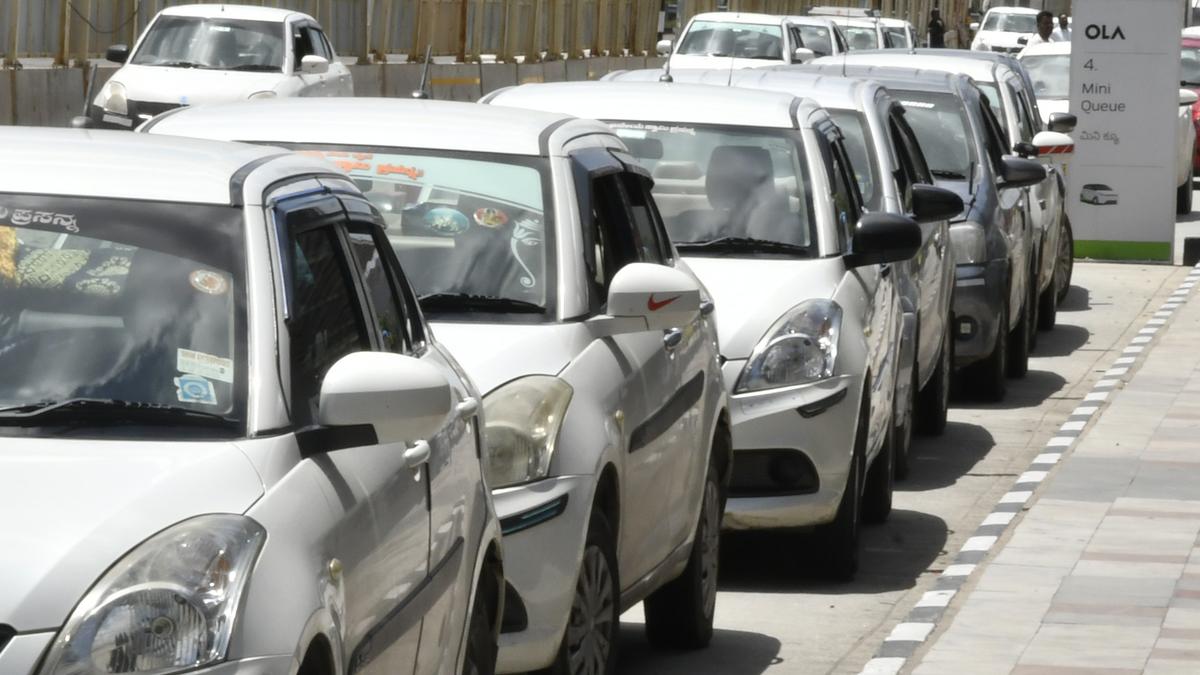
Passengers complain of continued overcharging by cab aggregators despite uniform fare structure
The Hindu
Passengers in Bengaluru frustrated as app-based cab aggregators flout government fare structure, leading to exorbitant pricing.
Meghana Rao, who frequently books rides to her workplace in Bellandur, was shocked to see her cab fare skyrocket n the evenings last week. “The app showed ₹700 for a 13-kilometre ride to Jayanagar, which should have cost much less under the government’s revised fare structure. Even during normal hours, it’s hard to find rides at the regulated rates,” she said.
Her experience reflects a common grievance among passengers in Bengaluru, who accuse app-based cab aggregators of flouting the Transport Department’s uniform fare structure introduced earlier this year. The revised guidelines were meant to standardise fares across app-based platforms and traditional taxis, ensuring affordability and transparency. However, commuters allege that these rules are routinely ignored, particularly during peak hours or in high-demand zones, leading to exorbitant pricing.
In February, the Karnataka government rolled out a simplified three-slab fare system based on the value of vehicles, doing away with the flexible pricing models used by app aggregators like Ola and Uber.
Under the revised structure, the base fare for a distance of upto four kilometres starts at ₹100 for vehicles valued upto ₹10 lakh, with an additional charge of ₹24 per kilometre thereafter. For vehicles priced between ₹10 lakh and ₹15 lakh, the initial four-kilometre fare is set at ₹115, with a subsequent per-kilometre rate of ₹28. Vehicles exceeding the ₹15-lakh mark will have a minimum fare of ₹130 for the first four kilometres, with each additional kilometre priced at ₹32.
The order also specifies that waiting charges are free for the initial five minutes and thereafter will be billed at ₹1 per minute. App-based aggregators will collect a 5% Goods and Services Tax (GST) from passengers, and toll charges may be passed on to riders. Nighttime fares, applicable from 12 a.m. to 6 a.m., will incur a 10% surcharge.
Previously, fare structure was revised for app-based cabs in 2021 and categorised into four slabs based on the value of vehicles. Non-app-based city taxis in Bengaluru were subject to varying minimum fares depending on the presence of air conditioning.
Despite these measures, passengers complain that the regulated rates are rarely applied.

The Karnataka government has drafted a comprehensive master plan for the integrated development of Kukke Subrahmanya temple, the State’s highest revenue-generating temple managed by the Hindu Religious Institutions and Charitable Endowments Department. The redevelopment initiative is estimated to cost around ₹254 crore and aims to enhance infrastructure and facilities for devotees.












